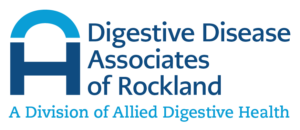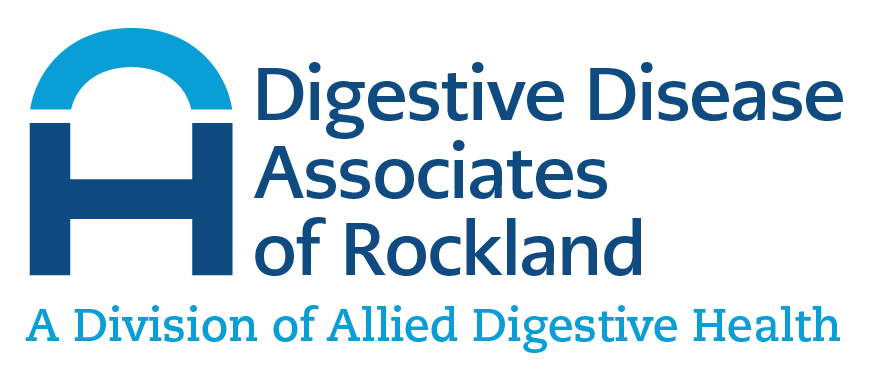What Are Esophagitis and Stricture?
Esophagitis is the inflammation of the lining of the esophagus. It presents with noticeable symptoms, such as difficulty swallowing (dysphagia) and severe heartburn. An abnormal tightening of the esophagus is an esophageal stricture, a condition that is sometimes caused by esophagitis. Both of these conditions require medical intervention, as inflammation of the esophagus that goes untreated can turn into more serious conditions.
What Is Esophagitis?
Your esophagus is the tube that connects the throat to the stomach. Sometimes swelling (inflammation) can occur, causing painful and uncomfortable digestive symptoms. Esophagitis is primarily caused by gastroesophageal reflux (GERD), which is when stomach acid makes its way into the esophagus, irritating it. Other causes of esophagitis include:
- Viruses, diseases, fungi, or bacteria that affect the immune system
- Vomiting
- Nonsteroidal anti-inflammatory medications (NSAIDs), such as ibuprofen, naproxen, and aspirin
What Are the Symptoms of Esophagitis?
Symptoms of esophagitis are noticeable and can be painfully uncomfortable. Patients may experience:
- Severe heartburn
- Difficulty swallowing (dysphagia)
- Painful swallowing (odynophagia)
- Regurgitation in the throat and mouth
Sometimes patients experience heartburn occasionally, and it’s easily treatable with over-the-counter antacids or OTC proton pump inhibitors (PPIs). But if these symptoms are persistent, you have difficulty swallowing, and regurgitation, consult your gastroenterologist as soon as possible.
How Is Esophagitis Diagnosed?
Your doctor will ask about your family and medical history and your symptoms and give you a physical examination. If esophagitis is suspected, your gastroenterologist may want to perform some diagnostic tests to confirm the diagnosis. These include:
- Endoscopy. This is a noninvasive, outpatient procedure. After you’re given twilight anesthesia, your gastroenterologist will insert a long, thin tube with a camera attached to it into your mouth and down your esophagus and stomach. Endoscopy can examine as far as the duodenum (the beginning of the small intestine).
- Biopsy. Your physician will take a tissue sample from your esophagus and send it to the laboratory for examination.
- Barium X-ray. For this diagnostic, you’ll drink a barium solution, which “lights up” areas of your esophagus on X-ray. This reveals any abnormalities in the esophagus.
How Is Esophagitis Treated?
Treatment for esophagitis depends highly on its cause. If it is caused by infection, you may be prescribed medications to treat the infection. Other causes may require proton pump inhibitors (PP!s) and acid-blocking drugs. Much of the treatment for esophagitis can depend on lifestyle choices. You can avoid alcohol, tobacco, and spicy food to reduce inflammation. Also, acidic foods can contribute to esophagus inflammation. This includes tomatoes, tomato products, and citrus fruits.
What Is Esophageal Stricture?
An esophageal stricture occurs when the esophagus tightens abnormally. This tightening can fully or partially block food that travels from the throat to the stomach. Patients with stricture may feel like there is always something stuck in their throat, and they may have difficulty swallowing (dysphagia). Esophageal strictures can be cancerous and benign, and there are two types:
- Simple strictures are often symmetrical and straight and leave a wider opening in the esophagus when compared to complex strictures.
- Complex strictures cause the esophagus to become more narrow than with a simple stricture. Complex strictures are also longer and are not symmetrical or straight.
What Causes Esophageal Strictures?
Several factors can cause esophageal strictures, such as:
- Eosinophilic esophagitis. An inflammation of the esophagus can lead to strictures.
- Gastroesophageal reflux disease (GERD). This is one of the most common causes of stictures. Stomach acid escapes into the esophagus in patients who have GERD.
- Esophageal cancer. When abnormal cells form in the esophageal tissues, strictures can form.
- Radiation. Radiation treatments can cause strictures up to a year later after radiation treatments to the head, neck, or chest.
- Other causes. Strictures can also be caused by ulcers, NSAIDs, surgery, infections, and antibiotics.
What Are Esophageal Stricture Symptoms?
If you have a narrowing of the esophagus, you may experience some symptoms. These include:
- Difficulty swallowing (dysphagia)
- Burning sensation in the throat
- Choking
- Feeling as if there is something stuck in your throat
If strictures aren’t treated, they can lead to dehydration and malnutrition because your body isn’t getting enough food and nutrients.
How Is Stricture Diagnosed?
If you or your physician suspect you may have esophageal stricture, they will want to perform some diagnostics. Some are similar to diagnosing esophagitis; barium X-ray and endoscopy are used.
Your physician may also perform an ultrasound or esophageal manometry. During this procedure, your doctor will insert a thin tube through your nostril, which measures the valve and muscle function of your esophagus.
How Are Esophageal Strictures Treated?
While esophagitis focuses on lifestyle changes to minimize symptoms, treatment for esophageal typically involves a noninvasive medical procedure to widen the esophagus, called esophageal dilation. This is an endoscopic procedure, where your physician inserts an endoscope into your mouth, down your throat, and into the esophagus. From here, your gastroenterologist may insert a balloon, which stretches the area, or plastic or rubber dilators to stretch the narrowing of the esophagus.
How Can I Prevent Esophageal Problems?
GERD is a common cause and denominator of both esophagitis and esophageal stricture. Lifestyle changes can help you manage your GERD symptoms, which lowers the risk of developing esophagitis or esophageal stricture. Management of GERD symptoms indicates you should:
- Avoid alcohol
- Quit smoking
- Not eat two hours before bedtime
- Elevate your pillow while sleeping
- Have healthy weight
- Avoid spicy or fatty foods
- Limit chocolate and caffeine
- Avoid citrus fruits, tomatoes, and their products and juices
Oftentimes, GERD symptoms can be managed with antacids or PPIs and changing lifestyle habits. As GERD is a contributing factor to more serious conditions, it’s important to address the root cause (if GERD is the cause of your esophageal problems).

